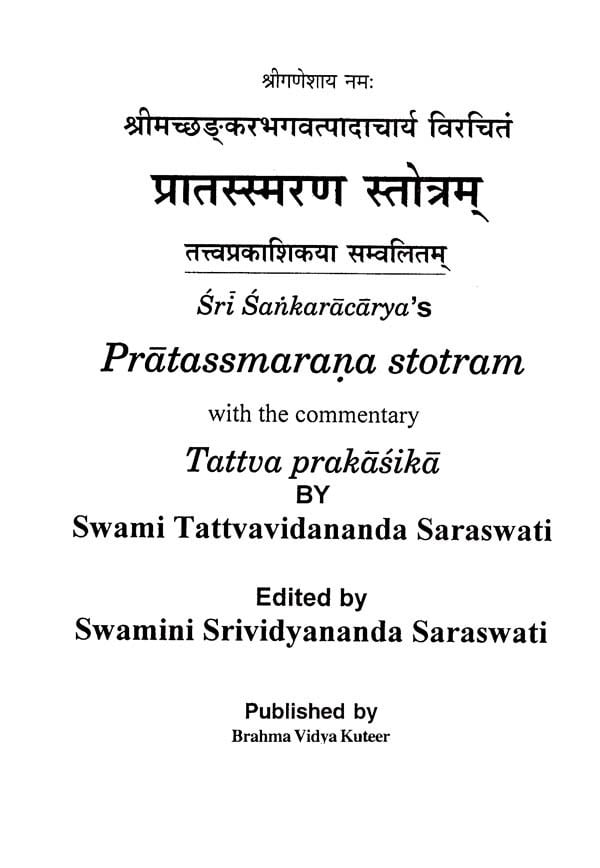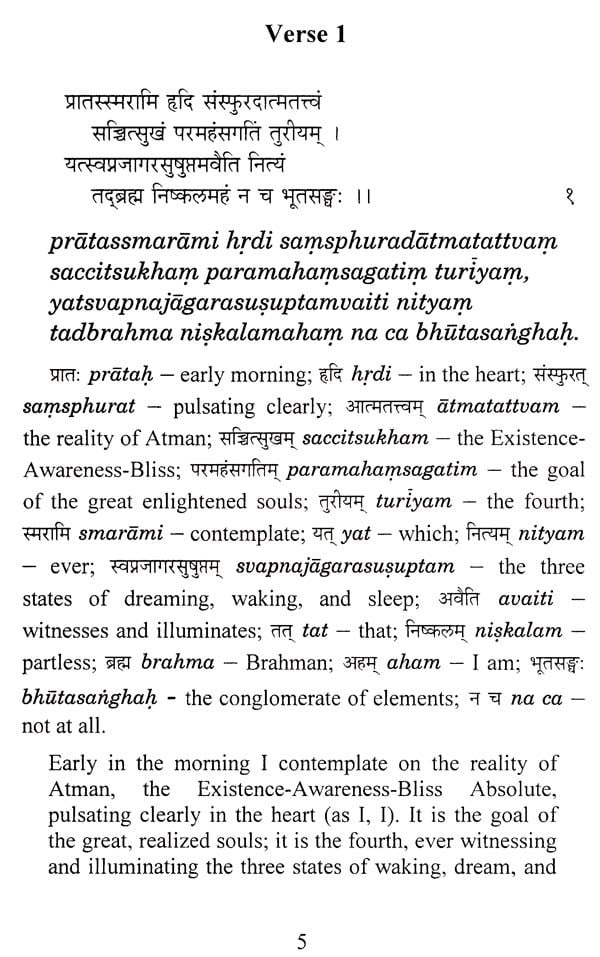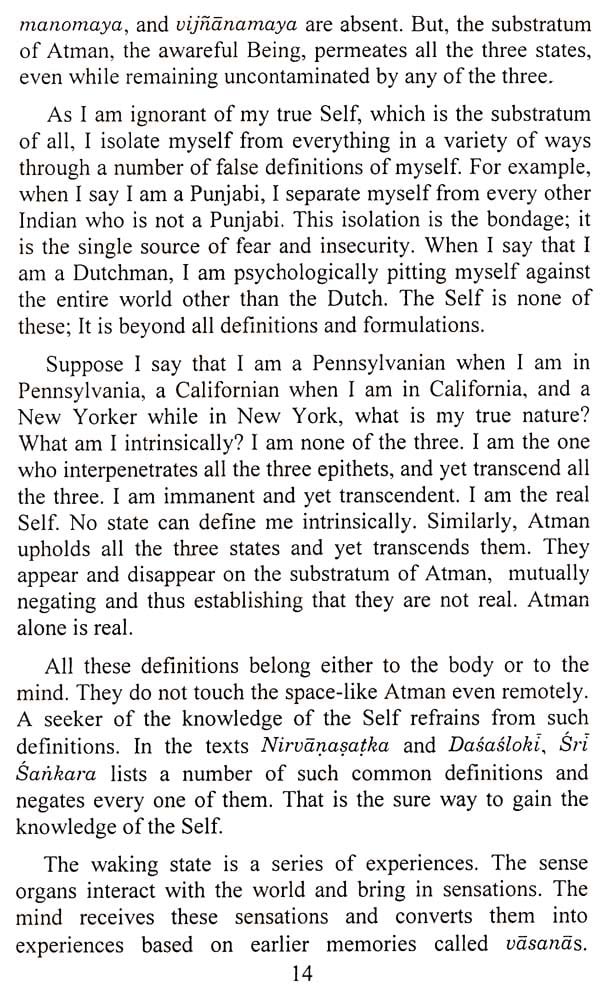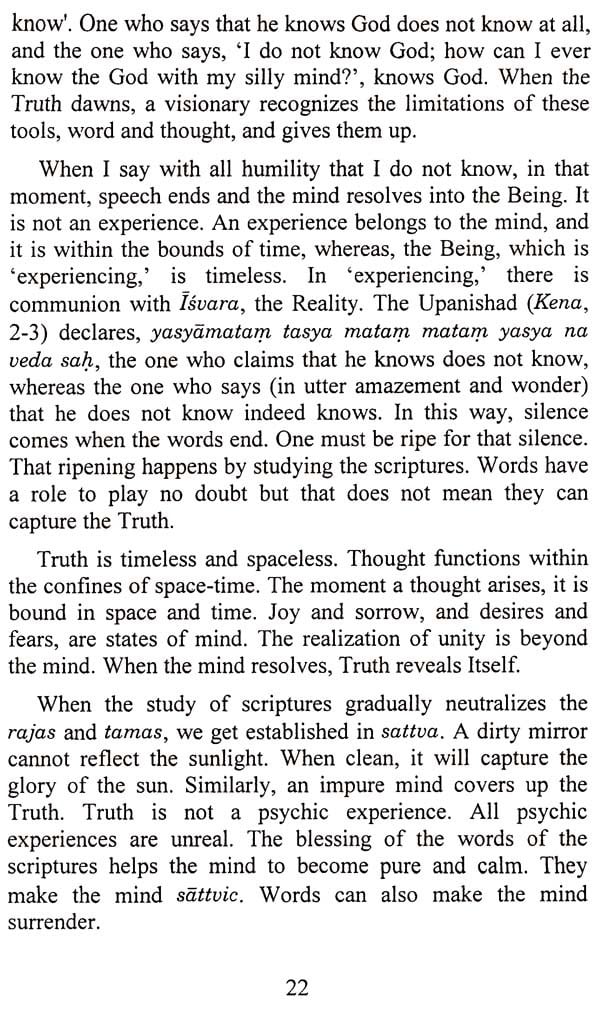
Sri Sankaracarya's Pratassmarana Stotram with the Commentary Tattva Prakasika
Book Specification
| Item Code: | UAT167 |
| Author: | Sankaracarya |
| Publisher: | BRAHMA VIDYA KUTEER |
| Language: | English |
| Edition: | 2008 |
| Pages: | 44 |
| Cover: | PAPERBACK |
| Other Details | 8.50 X 5.50 inch |
| Weight | 70 gm |
Book Description
Since time immemorial volumes have been written, songs and poems have been composed, on bhakti, devotion. Chanting of these songs and poems evokes various bhāvanās in the devotee. While giving expression to gentle feelings such as love, joy, sadness, devotion, etc., it transports the aspirant into the dimension of deepening stillness. As vācika karma, verbal action, chanting plays a stupendous role in a devotee's life. Adi Sankaräcärya has blessed us with a treasure trove of such prayers and compositions that have distilled the very essence of Vedanta. One such is the Pratassmarana stotram.
Swami Tattvavidanandaji has unfolded the verses in his inimitable style and clarity. Swamiji says. "There is a difference between knowing and learning. Knowing means the verses become a living thought and ushers in antaḥkarana vikäsa, inner transformation..." Swamiji exhorts about ignorance the 'only darkness in life, the source of irrational 'definitions and formulations' - and enlightens us through this stotram.
"What 'is', is reality but we have notions of what it should be. Truth is none other than the Self, you. When this is not understood, life becomes a process of 'becoming', which denies the joy of being..."
"It is moha, delusion, to search for happiness in the world... The striver is seeking for none other than his true Self... Knowing the essential nature of oneself immediately brings an end to the bondage of samsara, life of becoming."
Adi Sankarācārya is the foremost exponent of the Upanishadic philosophy of Advaita. He has authored commentaries popularly known as bhäsyas for ten of the Upanishads, the Brahma Sutras, and the Bhagavad Gita, collectively called prasthänatraya. These commentaries in the style of bhāṣä, the spoken word, constitute the single most profound source of Advaita philosophy. He also authored the most widely studied texts of Vedanta, called the prakaraṇas, which deal severally with the different topics of the Vedanta sastra.
Vedanta sastra is a study of human existence - its meaning and purpose. It is not just another 'logy' like epistemology, ontology and so on. It has a very wide scope as is expected, for the human life is very complex. When this subject is referred to as Vedanta sästra or Advaita philosophy, it sounds as something distant; but, in reality, it is all about you and me, our lives, and our struggles. It is indeed a study of our very being. In fact, our fundamental being is very simple and elementary, but the human mind being what it is a storehouse of a variety of desires, fears, and imaginations makes it seem extremely complex.
**Contents and Sample Pages**











